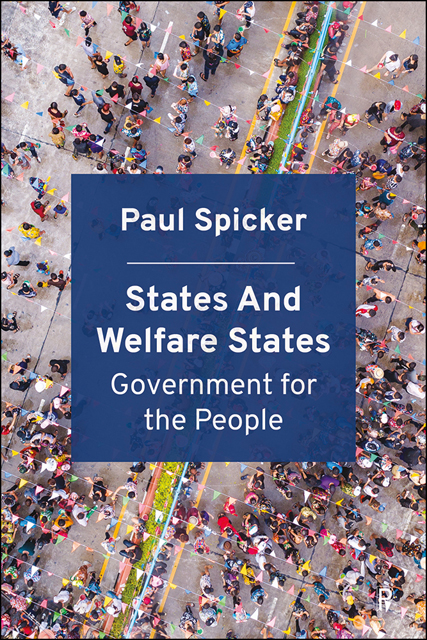8 - Which people?
Published online by Cambridge University Press: 20 June 2023
Summary
Summary
Some claims to act for ‘the people’ are addressed to society as a whole, or the nation; some relate only to some of the people. The primary distinction between systems of welfare falls between limited partial provision or clientelism; solidarity, which seeks to include many, but may exclude others; and institutional welfare, which attempts to offer rights to everyone, or at least to every citizen. In this context, the traditional distinction between residual and institutional welfare is not always helpful; both aim, in their different ways, to ensure protection for everyone, and states seeking to make general provision use the methods of both. The pattern of development, however, tends to be uneven, and generalised explanations for development are always incomplete.
In the discussion so far, I have not yet engaged with one of the central problems inherent in the idea that governments are responsible for the welfare of the people. Who are ‘the people’ we are talking about? The people who live within a state’s territory are commonly identified as a ‘society’ – indeed, for some commentators, a ‘society’ is just a shorthand for the people who live under the rule of one government. Barker treats the ‘national society or community’ as pretty much the same thing as the people who are governed within a particular state. A society is much more than that. Everyone, or nearly everyone, is born into a family; most of us are born into some kind of community, where several people come repeatedly into contact with each other, have relationships to each other, recognise each other as belonging to distinct social groups. The connections we have with other people are partly generated through interaction – coming into contact with other people – but interaction alone is too thin a concept to account for much of what happens in daily life. People in families live together, they do things together, and they have obligations towards each other. People who work together are typically in some sort of economic relationship, and that relationship means that people and organisations can reasonably make claims about each other’s actions. That does not make a society into a coherent, collective whole.
- Type
- Chapter
- Information
- States and Welfare StatesGovernment for the People, pp. 97 - 112Publisher: Bristol University PressPrint publication year: 2022



